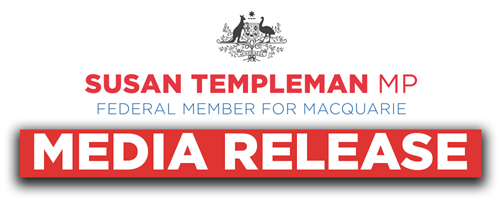
A key Parliamentary report on Australia’s mental health services in the wake of successive natural disasters and COVID has recommended a raft of significant reforms, including greater support for school students, improvements to service affordability, a focus on peer support, and the urgent need to increase the number of workers in the sector.
Federal Member for Macquarie Susan Templeman, a member of the Select Committee on Mental Health and Suicide Prevention, said she hoped the bipartisan report would assist government in prioritising funding decisions.
“I want to thank the dozens and dozens of witnesses who gave evidence while in quarantine or lockdown to help us put together this report, including the Mountains Youth Services Team (MYST) in Katoomba,” Ms Templeman said.
“The 44 recommendations to reform the system are designed to help Australia navigate a mental health, suicidality, social and emotional wellbeing crisis, exacerbated by successive natural disasters like bushfire and flood, as well as the pandemic.
“This has resulted in increased service demand, long waits for help and exposed the limitations of the current system.
“It’s something local mental health service providers, health workers, domestic violence prevention workers, and local residents have been telling me for a long time.
“The bushfires and floods in the Blue Mountains and Hawkesbury over the past two years coupled with two COVID lockdowns have placed enormous strain on many local people. I’ve had service providers tell me demand tripled in 2020 alone, and this inquiry has shown that this is happening right across the country.”
The inquiry was set up to assess the current situation, review recommendations already before the Australian Government, and identify priority reforms so people can access the right care at the right time.
Ms Templeman noted the commitment that the Committee Chair, Member for Reid, Dr Fiona Martin and her fellow Committee members gave to the inquiry.
“I particularly support Dr Martin’s statement that there is growing evidence linking mental health and climate change,” Ms Templeman said.
“Living through an increasing number of natural disaster events and the level of anxiety about the future simply can’t be ignored.
“It needs urgent action, not simply lip service, and it’s something I have been fighting for for many years.”
Among the recommendations outlined by the committee were:
- Investigation of the viability of bulk-billing incentives to mental health practitioners for the treatment of mental illness;
- Investment into research to determine the impacts of compounding trauma and successive disasters;
- Increasing the ratio of school psychologists to a minimum of one full-time equivalent on-site for every 500 students across all levels of school;
- Providing funding for the immediate development of a national workforce strategy on mental health;
- The expansion of virtual mental health care;
- Greater support for mental health professional development trainee GPs and GP practises and pharmacists and pharmacy staff;
- The development of a national carer strategy;
- The funding of Primary Health networks (PHNs) for mental health and suicide prevention services on five-year cycles;
More then 65,000 Australians attempt suicide every year, and more than 3,000 end their lives, the report stated.
“Lifeline Australia estimated that for every life lost to suicide, the impacts are felt by up to 135 people including family members, friends, work colleagues, and first responders,” Ms Templeman said.


